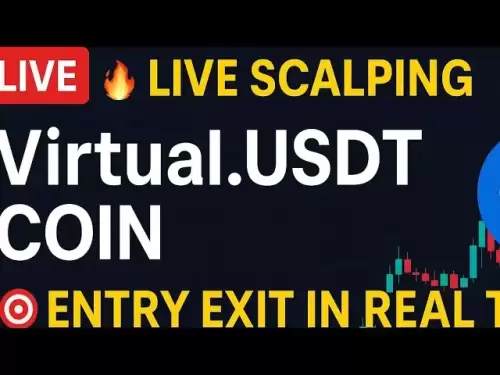-
 Bitcoin
Bitcoin $117,462.8204
-2.03% -
 Ethereum
Ethereum $3,061.1595
1.10% -
 XRP
XRP $2.9139
-2.19% -
 Tether USDt
Tether USDt $1.0002
0.02% -
 BNB
BNB $685.1357
-1.24% -
 Solana
Solana $161.3803
-2.11% -
 USDC
USDC $1.0002
0.04% -
 Dogecoin
Dogecoin $0.1948
-2.92% -
 TRON
TRON $0.2987
-0.89% -
 Cardano
Cardano $0.7330
-1.27% -
 Hyperliquid
Hyperliquid $47.7888
0.13% -
 Stellar
Stellar $0.4514
-2.93% -
 Sui
Sui $4.0169
2.74% -
 Chainlink
Chainlink $15.7088
-2.57% -
 Hedera
Hedera $0.2356
-3.33% -
 Bitcoin Cash
Bitcoin Cash $488.6656
-3.61% -
 Avalanche
Avalanche $21.2955
-1.47% -
 UNUS SED LEO
UNUS SED LEO $9.0415
0.42% -
 Shiba Inu
Shiba Inu $0.0...01332
-0.82% -
 Toncoin
Toncoin $3.0124
-0.62% -
 Litecoin
Litecoin $94.2175
-2.07% -
 Polkadot
Polkadot $4.0011
-0.61% -
 Monero
Monero $333.5714
-3.46% -
 Uniswap
Uniswap $9.1114
-1.56% -
 Dai
Dai $1.0000
0.02% -
 Ethena USDe
Ethena USDe $1.0005
0.00% -
 Bitget Token
Bitget Token $4.4951
1.87% -
 Pepe
Pepe $0.0...01242
0.47% -
 Aave
Aave $321.9943
0.51% -
 Bittensor
Bittensor $434.1984
5.13%
How are crypto mining profits taxed?
Cryptocurrency mining rewards are taxable as ordinary income, with businesses able to deduct operational costs like electricity and hardware depreciation.
Jul 14, 2025 at 12:28 am
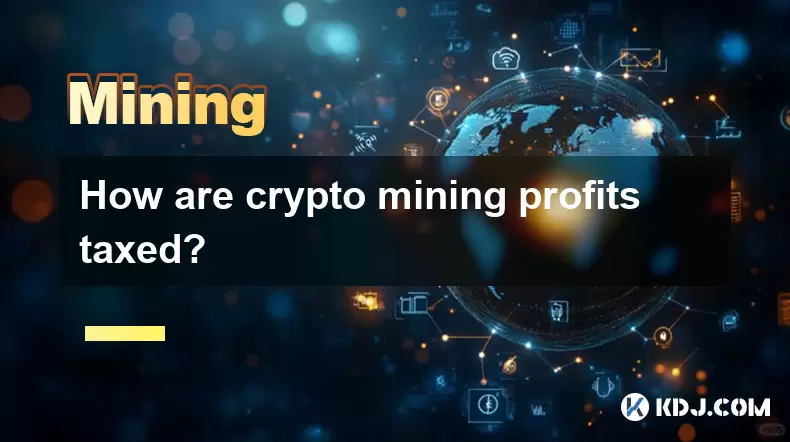
Understanding Cryptocurrency Mining and Taxation
Cryptocurrency mining involves validating transactions on a blockchain network and earning rewards in the form of digital assets. These rewards are considered taxable income by many governments, including the United States Internal Revenue Service (IRS). The tax treatment depends on whether the miner is operating as a business or an individual hobbyist.
The IRS treats mined cryptocurrency as ordinary income, valued at its fair market value on the day it was earned. This means that every time a miner successfully mines a block, they must report the received crypto as income. For business miners, this also opens up the possibility of deducting operational expenses like electricity, hardware depreciation, and internet costs.
Reporting Mined Crypto Income
When reporting mined cryptocurrency, taxpayers should keep detailed records of each mining event. These records should include:
- Date of mining
- Amount of cryptocurrency earned
- Fair market value in USD on the date of receipt
- Wallet address associated with the reward
These details help ensure accurate reporting on Form 1040 Schedule 1 for U.S. taxpayers. Some platforms provide tools to automate this tracking, especially if the mining pool or exchange supports automatic integration with tax software.
If a miner uses third-party services such as NiceHash or Slush Pool, these platforms often issue reports or can be linked to tax applications like CoinTracking or Koinly, which streamline the process of calculating taxable events.
Capital Gains Tax When Selling Mined Coins
Once the mined coins are sold, capital gains tax comes into play. The difference between the sale price and the original fair market value at the time of mining determines whether there's a capital gain or loss.
For example, if you mined 1 BTC when it was worth $30,000, and later sell it for $40,000, the capital gain is $10,000. This amount is taxed based on your holding period — short-term (less than a year) or long-term (more than a year).
Short-term gains are taxed at ordinary income rates, while long-term gains benefit from lower tax brackets. It’s essential to track the cost basis of each coin to calculate this accurately.
Tax Implications for Mining Pools and Cloud Mining
Joining a mining pool or using cloud mining services doesn’t change the fundamental tax rules, but it adds complexity. In a mining pool, rewards are distributed proportionally based on contribution. Each payout must still be recorded as income on the day it is received.
Cloud mining contracts may involve paying fees or receiving hash power without directly owning the hardware. Even so, the IRS considers the mined coins as income, regardless of how the mining is conducted.
Some cloud mining providers do not issue tax documents, making it even more important for users to maintain their own logs. Platforms like Genesis Mining or Hashflare may offer downloadable transaction histories that can assist in this effort.
Deductible Expenses for Business Miners
Miners who operate as a business can claim deductions for various expenses related to their operations. These may include:
- Electricity costs used for mining
- Depreciation of mining hardware (e.g., ASICs, GPUs)
- Internet service fees
- Cooling and ventilation systems
- Software subscriptions for mining pools or monitoring
To qualify as a business, the mining activity must be carried out with the intent to make a profit. Hobbyists generally cannot deduct losses or expenses. Keeping receipts and invoices is crucial when claiming these deductions during tax filing.
Additionally, miners may depreciate equipment under the Modified Accelerated Cost Recovery System (MACRS) in the U.S., allowing them to spread the cost over several years.
Frequently Asked Questions
Q: Do I have to pay taxes if I mine a small amount of crypto?
Yes, regardless of the amount mined, any cryptocurrency earned through mining is considered taxable income. Even small amounts must be reported at their fair market value on the day they were received.
Q: What if I mine crypto but never convert it to fiat currency?
You still owe taxes on the income when you receive the mined crypto. The tax liability occurs at the time of receipt, not when you sell or trade it.
Q: Are staking rewards taxed the same way as mining profits?
In many jurisdictions, including the U.S., staking rewards are treated similarly to mining income. They are taxed as ordinary income at fair market value on the day received, and capital gains apply upon disposal.
Q: Can I use crypto tax software to track my mining income automatically?
Yes, many platforms like CoinLedger, CoinTracking, and TokenTax support automatic import from exchanges and wallets. Some also integrate with mining pools to simplify income tracking and tax reporting.
Disclaimer:info@kdj.com
The information provided is not trading advice. kdj.com does not assume any responsibility for any investments made based on the information provided in this article. Cryptocurrencies are highly volatile and it is highly recommended that you invest with caution after thorough research!
If you believe that the content used on this website infringes your copyright, please contact us immediately (info@kdj.com) and we will delete it promptly.
- Cantor Fitzgerald, Bitcoin, and SPAC Acquisitions: A New York Perspective
- 2025-07-16 10:30:12
- PoL v2 and BeraChain: Building a Stronger Blockchain Ecosystem
- 2025-07-16 10:30:12
- Bitcoin, Social Media, and FOMO: A New Yorker's Take on the Crypto Craze
- 2025-07-16 10:50:12
- GameStop, Bitcoin, and the Inflation Hedge: A New York Perspective
- 2025-07-16 08:30:12
- Tornado Cash on Trial: Privacy Tool or Money Laundering Machine?
- 2025-07-16 10:50:12
- Solana Memecoins Hit the Big Time: PUMP and Sonic Get Coinbase Listing Boost!
- 2025-07-16 06:50:12
Related knowledge

How are crypto mining profits taxed?
Jul 14,2025 at 12:28am
Understanding Cryptocurrency Mining and TaxationCryptocurrency mining involves validating transactions on a blockchain network and earning rewards in ...
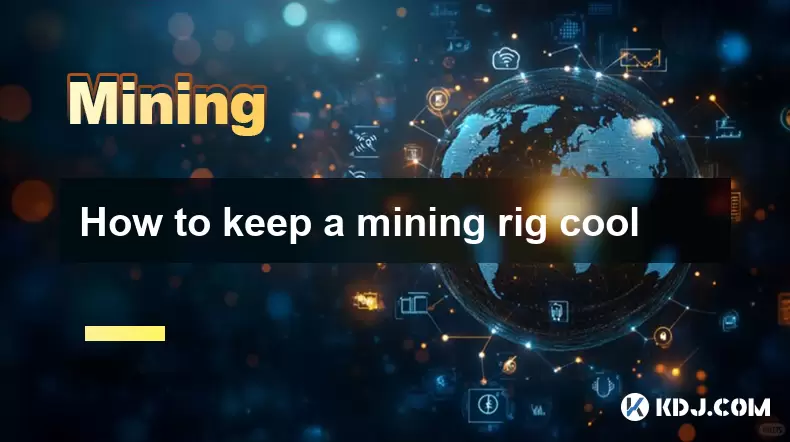
How to keep a mining rig cool
Jul 12,2025 at 01:42pm
Understanding the Importance of Cooling in Mining RigsCryptocurrency mining is an intensive process that places heavy demand on hardware components, p...
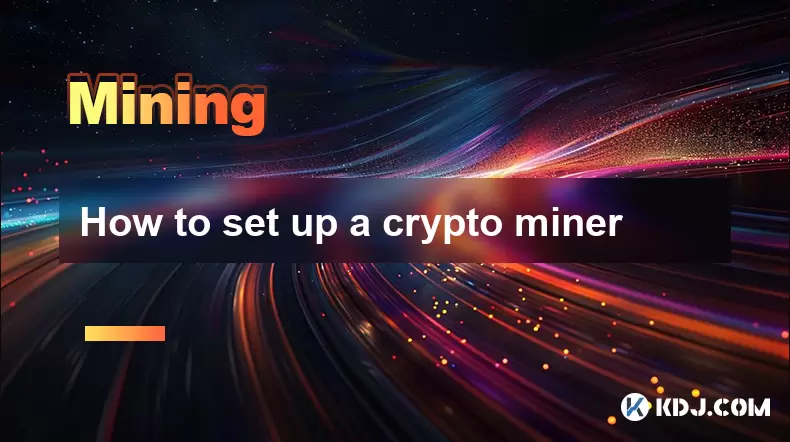
How to set up a crypto miner
Jul 16,2025 at 09:14am
Understanding Ethereum Gas Fees: What Are They and How Do They Work?Ethereum gas fees are a fundamental aspect of the network, representing the cost r...

Can you mine crypto on a laptop?
Jul 16,2025 at 02:21am
Is It Feasible to Mine Cryptocurrency on a Laptop?Mining cryptocurrency on a laptop is technically possible, but feasibility depends heavily on the ha...
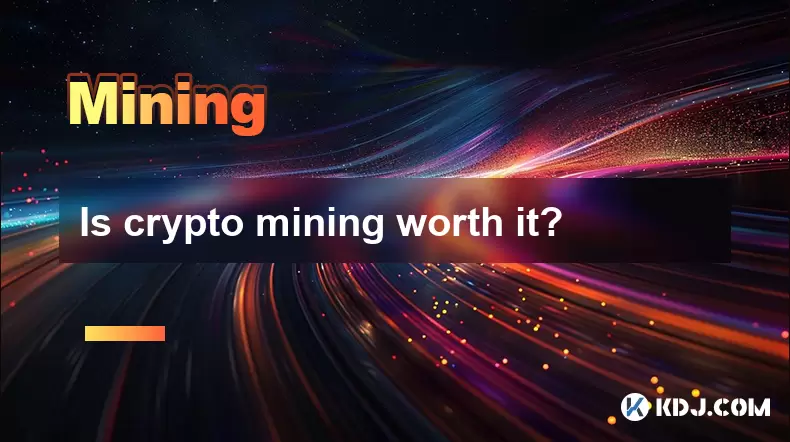
Is crypto mining worth it?
Jul 16,2025 at 01:21am
Understanding the Basics of Crypto MiningCrypto mining refers to the process of validating transactions on a blockchain network by solving complex mat...

How much does it cost to start crypto mining?
Jul 13,2025 at 12:22am
Understanding the Basic Costs of Crypto MiningStarting crypto mining involves several upfront and ongoing expenses. The primary costs include hardware...

How are crypto mining profits taxed?
Jul 14,2025 at 12:28am
Understanding Cryptocurrency Mining and TaxationCryptocurrency mining involves validating transactions on a blockchain network and earning rewards in ...

How to keep a mining rig cool
Jul 12,2025 at 01:42pm
Understanding the Importance of Cooling in Mining RigsCryptocurrency mining is an intensive process that places heavy demand on hardware components, p...

How to set up a crypto miner
Jul 16,2025 at 09:14am
Understanding Ethereum Gas Fees: What Are They and How Do They Work?Ethereum gas fees are a fundamental aspect of the network, representing the cost r...

Can you mine crypto on a laptop?
Jul 16,2025 at 02:21am
Is It Feasible to Mine Cryptocurrency on a Laptop?Mining cryptocurrency on a laptop is technically possible, but feasibility depends heavily on the ha...

Is crypto mining worth it?
Jul 16,2025 at 01:21am
Understanding the Basics of Crypto MiningCrypto mining refers to the process of validating transactions on a blockchain network by solving complex mat...

How much does it cost to start crypto mining?
Jul 13,2025 at 12:22am
Understanding the Basic Costs of Crypto MiningStarting crypto mining involves several upfront and ongoing expenses. The primary costs include hardware...
See all articles























